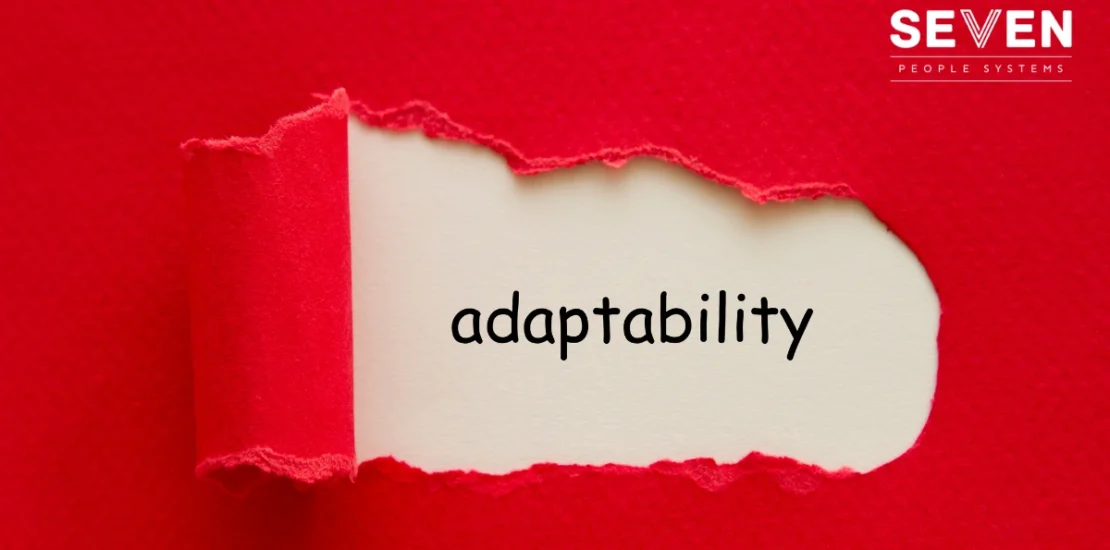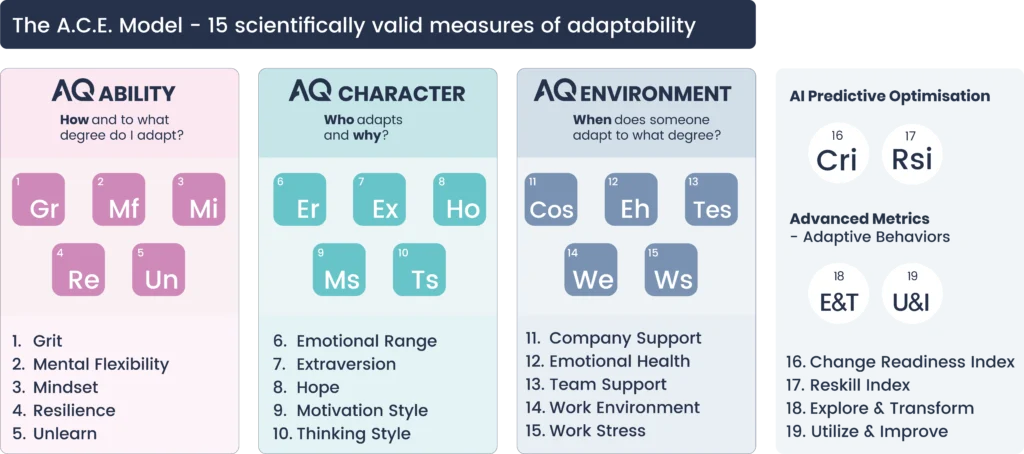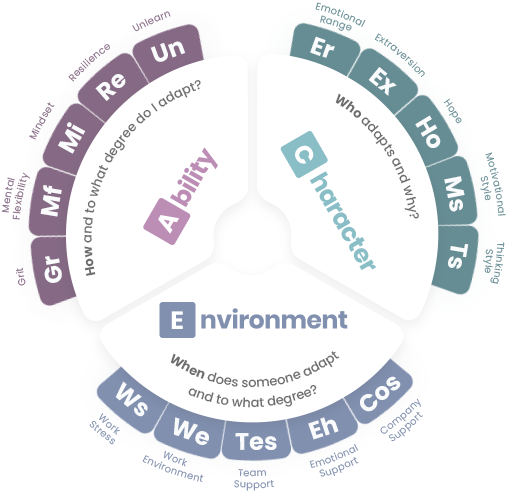Adaptability & Adaptive Leadership in India
- August 11, 2025
- Posted by: info@seven.net.in
- Category: Talent Management

The Urgency of Adaptability
In the next decade, leaders across India will face more change than humanity has experienced in the last century. According to McKinsey, nearly 70% of organisational change initiatives fail, not because the strategy is wrong, but because people aren’t ready to adapt. Daniel Goleman, the pioneer of emotional intelligence, calls adaptability the single strongest predictor of career success among all social and emotional competencies.
In this high-velocity business climate, adaptability is no longer a “soft skill” — it’s the competitive edge that separates market leaders from those left behind.
At the forefront of this movement in India is Nikhil Maini, an internationally recognized adaptability expert, and Seven People Systems, India’s #1 provider of adaptability assessments, adaptive leadership development, and organisational adaptability solutions. Through the power of AQai’s science-backed Adaptability Quotient (AQ) framework, they help leaders and organisations measure, understand, and build the capacity to thrive in a BANI (Brittle, Anxious, Nonlinear, Incomprehensible) world.
Why Adaptability is the #1 Leadership Skill for India Today
India’s business landscape is transforming at unprecedented speed. The country is projected to remain one of the fastest-growing major economies, with rapid digital transformation, global market integration, and shifting workforce expectations reshaping every sector. But this growth also brings volatility, uncertainty, and competitive pressure that demand a different kind of leadership.
Here’s why adaptability tops the list of must-have leadership skills for Indian organisations in 2025 and beyond:
- Economic Shifts and Market Disruption – Global supply chain changes, fluctuating commodity prices, and trade policy shifts mean leaders must pivot strategies quickly.
- Digital Transformation and AI Adoption – From fintech to manufacturing, AI, automation, and Industry 4.0 are redefining how businesses operate. Leaders who adapt fast can turn disruption into opportunity.
- BANI/VUCA Environments – We’ve moved beyond VUCA into a world that is brittle, anxious, nonlinear, and incomprehensible — adaptability is the antidote.
- Evolving Workforce Demographics – Millennials and Gen Z now dominate India’s talent pool, bringing expectations of flexibility, purpose, and rapid growth opportunities.
- Sustainability and ESG Pressures – Indian companies face rising expectations around environmental, social, and governance performance.
The takeaway: Leaders who can read the environment, recalibrate their approach, and inspire teams through uncertainty will define the next decade of Indian business success.
The Science of Adaptability: The AQ Model
Adaptability isn’t guesswork — it can be measured, developed, and improved using a scientifically validated framework. At Seven People Systems, we use the AQai Adaptability Quotient (AQ) model, the world’s first data-driven approach to understanding how, why, and when individuals and organisations adapt to change.
The A.C.E. Framework

1. AQ Ability – How You Adapt
Measures learnable skills:
- Grit – Long-term goal commitment.
- Mental Flexibility – Perspective switching and managing paradoxes.
- Mindset – Beliefs about change and growth.
- Resilience – Bounce back and bounce forward capacity.
- Unlearn – Letting go of outdated practices.
2. AQ Character – Why You Adapt
Motivations and traits:
- Emotional Range, Extraversion, Hope, Motivation Style, Thinking Style.
3. AQ Environment – When You Adapt
Contextual factors:
- Company Support, Emotional Health, Team Support, Work Environment, Work Stress.
By assessing these sub-dimensions, we can pinpoint where leaders, teams, and organisations need to strengthen their adaptability muscles. This allows targeted development programs, not generic training.
Adaptive Leadership – What it Means for Indian Organizations
Traditional leadership was designed for stability; adaptive leadership thrives in uncertainty. It’s about navigating change, adjusting strategies in real time, and mobilising teams to solve evolving challenges.
Key Principles in the Indian Context:
- Embrace Change as Constant – Anticipate disruption.
- Experimentation Over Perfection – Test, learn, iterate.
- Empathy and Emotional Intelligence – Foster trust in diverse teams.
- Empower at All Levels – Decentralise decisions.
- Blend Data and Human Insight – Balance analytics with judgment.
At Seven People Systems, we combine Adaptive Leadership development with the AQai Adaptability Assessment to help leaders translate self-awareness into practical, high-impact behaviors.
Adaptability Assessments in India – Why Measure Before You Develop
Jumping straight into training without knowing your adaptability baseline is a costly mistake.
Adaptability assessments:
- Identify strengths to leverage.
- Reveal gaps that could derail strategy.
- Uncover environmental factors that enable or block adaptability.
Why it matters in India:
- Diverse workforce dynamics.
- Rapid sectoral shifts.
- High-stakes transformation projects.
Seven People Systems delivers the AQai-powered Adaptability Quotient Assessment, measuring all 15 sub-dimensions in the A.C.E. model, providing personalized visual reports and actionable strategies.
How Seven People Systems Delivers Adaptability Solutions
- Measure What Matters – AQme (individual) or AQteam (team) assessments.
- Decode and Debrief – Expert-led interpretation of results.
- Build a Targeted Plan – Adaptive leadership training, change readiness workshops, resilience coaching.
- Integrate Into Culture – Embedding adaptability into systems, processes, and leadership pipelines.
- Track and Improve – Re-assessment every 6–12 months for sustained progress.
From digital transformation to mergers & acquisitions, our adaptability solutions help Indian organisations thrive in uncertainty and lead the future.
From Insight to Action: The Adaptability Development Journey
- Step 1: Awareness – Understand your adaptability profile.
- Step 2: Planning – Create custom roadmaps.
- Step 3: Skill-Building – Develop grit, resilience, mindset, and unlearning.
- Step 4: Culture Embedding – Integrate adaptability into organisational DNA.
- Step 5: Continuous Measurement – Reassess, refine, and sustain momentum.
Why Seven People Systems & Nikhil Maini are India’s Leading Authority
Proven Expertise:
- AQai-certified.
- 28+ years across 23+ industries.
- Trusted by Fortune 500 companies and high-growth startups.
Exclusive AQai Partnership:
- One of the few certified AQai providers in India.
Integrated Approach:
- Combines AQ with OKRs, Agile Transformation, Resilience Building, change management, and leadership coaching.
Measured Impact:
- Improved change adoption, resilience, innovation capacity, and talent retention.
FAQs on Adaptability, Adaptive Leadership, and Assessments in India
1. What is adaptability in leadership?
Adaptability in leadership is the capacity to adjust strategies, decisions, and behaviors in response to changing conditions, while inspiring others to embrace change. It’s a core driver of innovation, resilience, and long-term organisational success
2. Where can I take an adaptability assessment in India?
You can take AQai’s globally validated adaptability assessment through Seven People Systems, led by Nikhil Maini, India’s leading expert in leadership adaptability and organisational change
3. How does Seven People Systems measure adaptability?
We use AQai’s A.C.E. Model: Ability (how you adapt), Character (who adapts and why), and Environment (when and to what degree you adapt)—covering 17 scientifically validated sub-dimensions linked to performance and change readiness
4. Who is Nikhil Maini?
Nikhil Maini is the Managing Director of Seven People Systems Pvt. Ltd. and an internationally recognized expert in OKRs, Organizational Culture, Agile Leadership Development & Adaptability. He specializes in helping leaders and organisations thrive in a BANI world by embedding adaptability as a competitive advantage.
5. What are the benefits of an adaptability test?
n AQ assessment delivers clear, data-driven insights into your adaptability strengths and growth areas. Benefits include faster change adoption, stronger resilience, improved decision-making, enhanced innovation, and higher employee engagement.
Conclusion: Lead the Future with Adaptability
Adaptability is the foundation for resilience, innovation, and growth. Seven People Systems, led by Nikhil Maini, has become the trusted partner for organisations seeking to future-proof their leadership and workforce. Don’t just adapt to change, lead it.
Contact Seven People Systems today to book your Adaptability Quotient Assessment and unlock your organization’s change readiness. Call us at +91.8104856725 to know more.


